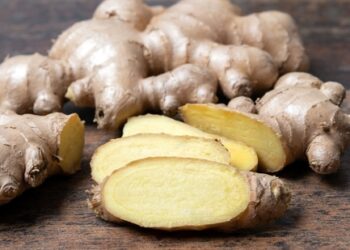As consumers increasingly gravitate towards products labeled as “natural,” a troubling trend has emerged, raising questions about the implications of this preference. A study published in the journal Social Psychological and Personality Science explores this phenomenon, revealing that the allure of the term “natural” often leads individuals to make hasty and potentially harmful choices. This instinctive bias toward natural products spans various categories, from food and medicine to everyday items, and significantly influences consumer behavior.
The research highlights that people have an inherent tendency to trust natural products more than their synthetic counterparts, believing them to be safer and more effective. This perception can lead to misguided decisions, as consumers often overlook evidence that suggests otherwise. For instance, in experiments where participants were given the option to choose between natural and non-natural items, the results consistently favored the natural label. This preference persisted even in situations where the natural option came with warnings about potential side effects, such as upset stomach.
In one of the experiments, participants were asked to select performance-enhancing drinks, and a significant majority opted for the natural version, despite the lack of substantial evidence supporting its efficacy. The study further demonstrated that this bias extends to riskier choices, such as selecting between a natural or synthetic drug for a medical test. Astonishingly, even when faced with potential risks, many participants chose the natural option, reinforcing the idea that the perception of “natural” often supersedes rational evaluation.
The psychological underpinnings of this bias are complex. The word “natural” conveys a sense of safety, quality, and effectiveness, creating a cognitive shortcut that bypasses critical thinking. This strong association can lead to a form of tunnel vision, where consumers disregard important information about the actual benefits or drawbacks of a product. The implications of this mindset are particularly concerning when it comes to health-related decisions, where the stakes are significantly higher.
Moreover, this inclination toward natural products is further exacerbated by societal trends that glorify organic and green living, often presenting them as inherently superior. The narrative around natural products as healthier choices is deeply embedded in contemporary culture, influencing everything from dietary habits to personal care routines. As a result, individuals may feel compelled to choose natural products to align with societal expectations or personal values, often without fully understanding the implications of their choices.
In conclusion, the preference for natural products is not merely a passing trend but a deeply rooted psychological bias that shapes consumer behavior across various domains. While the appeal of natural products is understandable, it is crucial for individuals to engage in critical thinking and seek out evidence-based information when making choices, particularly in areas related to health and well-being. A more informed approach can help mitigate the risks associated with blind trust in the label “natural,” leading to better decision-making and overall outcomes.








 India
India












